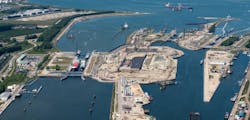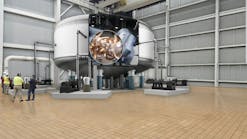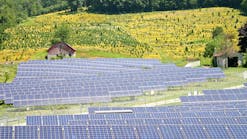Emirates Airline Signs for 23-MW Solar Array Connecting to Nearly $1B Dubai Engineering Complex
Emirates Airline and Etihad Clean Energy Development have signed an agreement to introduce a solar energy array at its US$950 million Emirates Engineering Centre project in Dubai.
The collaboration includes the development, engineering, procurement, construction, testing, and commissioning of solar PV systems at the future facility, along with 20 years of operation and maintenance services.
The project’s total capacity will be 23,177 kW (23.2 MW), with an estimated annual generation of 34,301,960 kWh.
A total of 39,960 solar panels will be installed, providing 37 percent of the facility's annual energy consumption and reducing CO2 equivalent emissions by over 13,000 tons each year upon completion.
The solar PV systems will contribute to long-term environmental benefits and help the centre operate efficiently using clean energy.
The project is part of both companies’ broader efforts to support the UAE’s sustainability agenda, which focuses on reducing dependence on non-renewable energy sources and moving towards a low-carbon future.
Construction on phase one of the 1 million square-foot Emirates Engineering Centre began this year. Altogether, the facility will add eight maintenance hangars and one paint hangar, all built to support the international airline’s growth through the 2040s, according to reports.
Airport microgrids are growing in deployment as airlines and operators seek energy resiliency and sustainability goals. Recently, New York City's JFK Airport started construction on the solar energy portion of a planned 12-MW microgrid.





